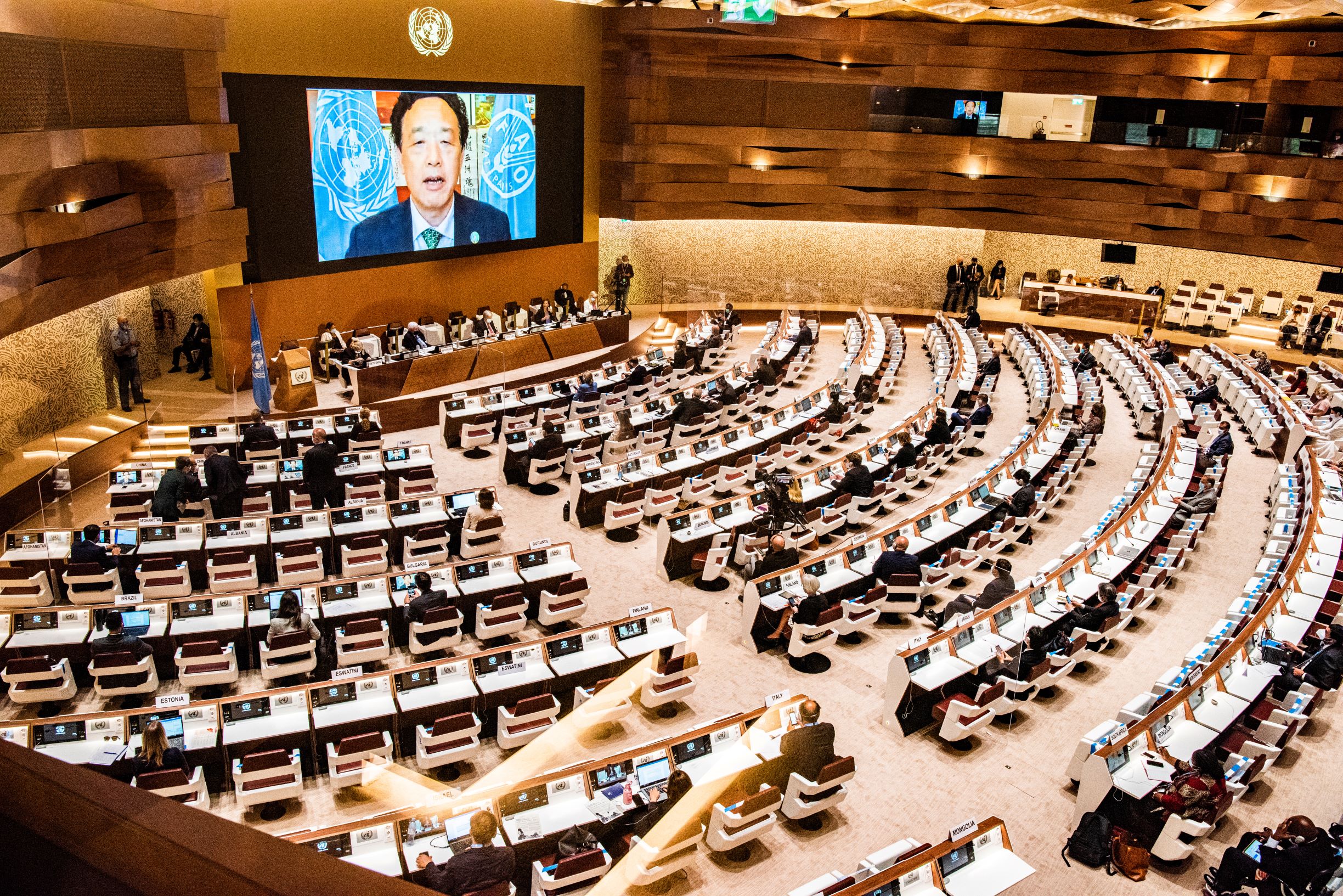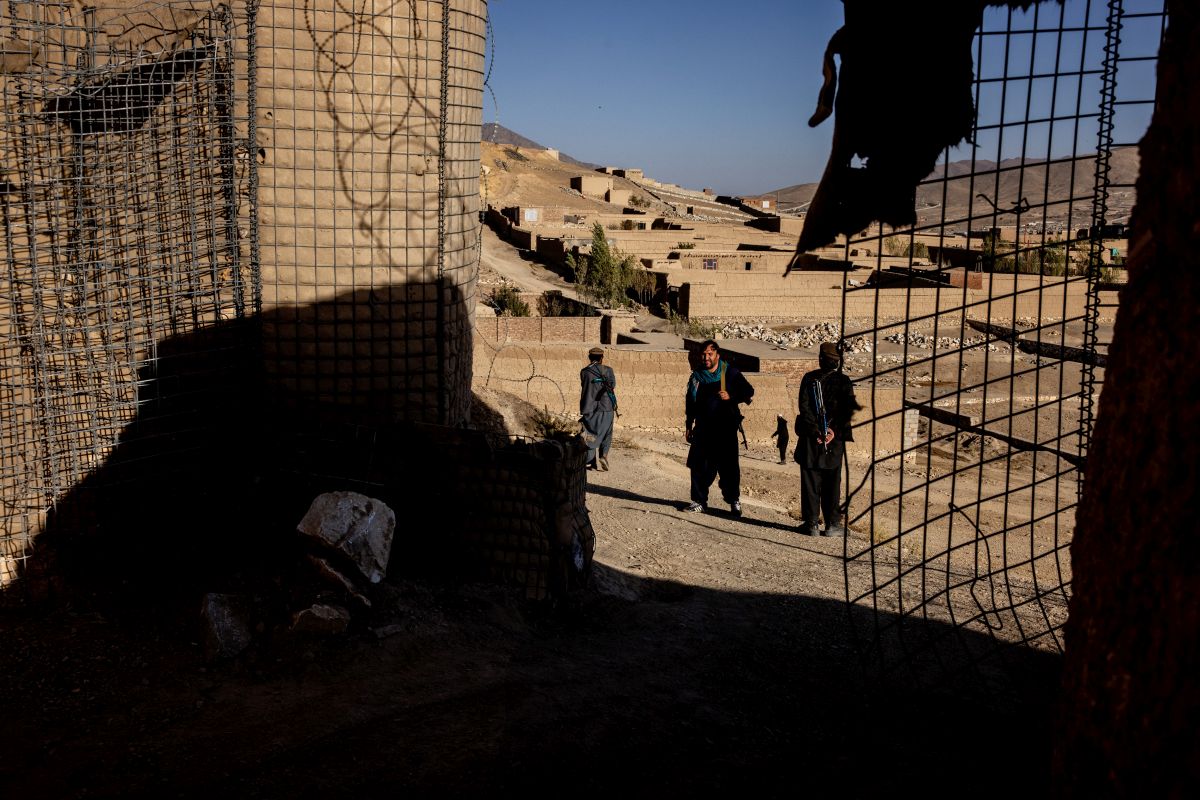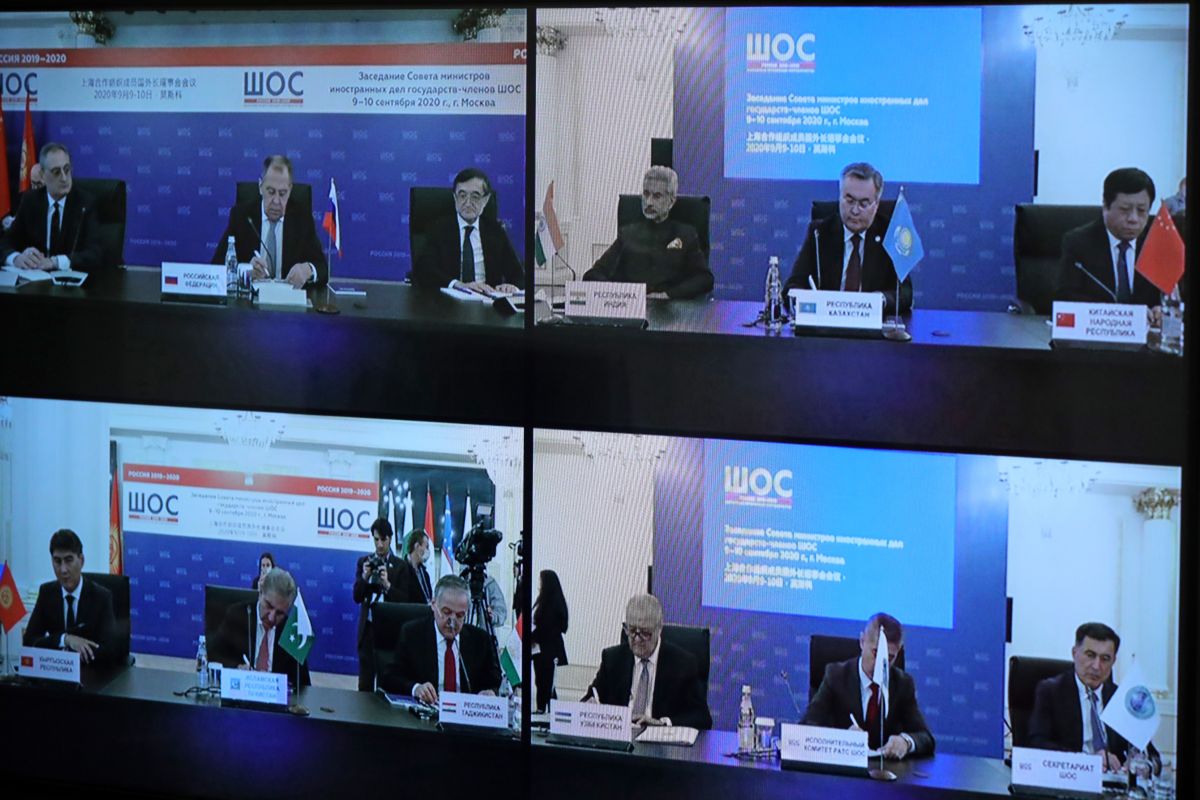 Photo: Mark Henley/Panos Pictures
Photo: Mark Henley/Panos Pictures
Historical Context
Afghanistan is not a priority in China’s foreign policy. In the 1990s, it maintained behind-the-scenes ties with the Taliban government of that period. Official diplomatic relations were established in 2000. In 2001, China criticised the U.S. and NATO intervention as “interference in Afghanistan’s internal affairs”. However, it took advantage of the relative stabilisation and the building of a basic administration in the new state. President Hamid Karzai paid a state visit to China twice (2002, 2003). In May 2002, the Chinese foreign minister visited Afghanistan, and in December of that year China signed a neighbourly declaration that included respect for the sovereignty of Afghanistan and support for the peace process. An important element of China’s support for the country included military cooperation, with the priority to reduce the terrorist threat and drug trafficking in the region. In 2015, China, together with Pakistan, initiated a tripartite dialogue. This suggested China’s desire to use its relations with Afghanistan to limit India’s aspirations. The political commitment went hand in hand with a moderate economic presence. In 2019, China was Afghanistan’s fifth-largest export market by value and its fourth-largest source of imports. The Chinese share in trade increased by over 100% in 2016-2020. However, the success in trading was not followed by investments. Commenced projects, such as crude oil extraction in the Amu Daria basin or the development of the copper mine in Aynak, were quickly suspended due to the lack of arrangements for oil transit and attacks on Chinese workers.
China’s Official Declarations
For the Taliban, China is an important partner whose support can improve their international situation and facilitate the management of the state. China actively participated in the negotiations between the Kabul government and the Taliban, and hosted both delegations in Ürümqi in 2015. The Taliban also consulted, for example, the U.S. peace proposals with China’s Special Representative for Afghan Affairs in 2019. Chinese Foreign Minister Wang Yi received an official Taliban delegation in Tianjin, and China’s Foreign Ministry confirmed its readiness to play a constructive role in the peace process. China has maintained normal operations of its embassy in Kabul and its willingness to cooperate with the new authorities was confirmed in September by China’s deputy foreign minister.
The Chinese declarations are part of the political rivalry with the U.S. The withdrawal of American forces from Afghanistan is emphasised as evidence of China’s systemic superiority over the United States. Chinese Communist Party media, experts, and politicians characterise the situation as the failure of the American hegemonic policy of “interference in internal affairs”, which has worsened the security of Afghans. Some of these reports are disinformation in nature, emphasising, for example, the selective nature of the U.S. military’s actions during the evacuation (“they took dogs instead of people”). The rhetoric of these Chinese experts and authorities includes the opinion that the U.S. “armed democratisation” was the source of radicalisation of Afghan society, and it will now disappear. Minister Wang Yi claimed that the Taliban seizure of power is a manifestation of Afghan self-governance. The subject of further cooperation with Afghanistan and the problems for European countries (particularly Germany and France) that resulted from the chaotic withdrawal of U.S. troops is also used by China to try to increase distrust in transatlantic relations.
Real Engagement
China’s political declarations do not translate into real economic support. In everyday contacts, China remains reserved towards the Taliban, which was one reason why the new Afghan authorities were not invited to the recent summit of the Shanghai Cooperation Organisation (SCO). In Chinese Ministry of Foreign Affairs declarations, the Taliban efforts regarding building an efficient state, combating terrorist groups, or relations with Afghanistan’s neighbours are worth noting, but should be monitored for some time. President Xi Jinping in his speech at the September SCO summit emphasised China’s willingness to cooperate with Afghanistan, but mainly to persuade it to adopt moderate policy with respect to the international community. He stressed that counter-terrorism and a smooth transformation should be the priorities for the Taliban. As an example of real cooperation, he mentioned humanitarian aid, also in relation to the COVID-19 pandemic. China has so far pledged modest support of about $31 million—compare that to the United Nations’ $1 billion in pledged aid, of which, for example, the U.S. has contributed about $70 million, Germany about $120 million, and France about $100 million. China’s priorities were also expressed by Foreign Minister Wang Yi in a speech during a meeting of foreign ministers from neighbouring countries in which he stressed the importance of Afghanistan as “a lesson for the U.S. and its allies”, and the need for the Taliban to build an inclusive government. These priorities are repeated by the party daily Global Times, which reported on Chinese companies interested in investing in Afghanistan (e.g. in housing construction) but only after the stabilisation of the country, mainly in terms of security. State-owned CNPC, which is exploring oil deposits in Afghanistan, indicated its readiness to return when security is ensured. Ministry of Trade and Central Asia experts recommend Chinese exports to Afghanistan, but advise against investment or a credit rush. They indicate as arguments the country’s development backwardness, resulting in, for example, a lack of food. The main argument, however, is the lack of security under the Taliban given the activities of the ISIS Afghan branch (ISIS-K). Within ISIS-K there are Uighur fighters from the Islamic East Turkestan Movement (ETIM). China recalls that in 2000 the Taliban—although they handed over a dozen Uighur fighters—refused to expel ETIM in general.
An important element of China’s involvement in Afghanistan is also regional cooperation, implemented in part through the SCO. A meeting between China, Russia, Iran, and Pakistan was held on the sidelines of the September summit. In the SCO, however, it is difficult to expect specific outcomes of this cooperation, mainly due to the Indo-Pakistan rivalry. The stabilisation of Afghanistan will also become an element of Sino-Russian cooperation aimed at thwarting U.S. interests.
Conclusions
The situation in Afghanistan is perceived by the Chinese authorities as a threat to their interests rather than an economic opportunity. Therefore, China will focus on building its image in the country, rather than using “hard power”. It has started with propaganda about the U.S. failure there, addressing its message first to the Chinese, but also to others in the EU or the Middle East. Awareness of the Chinese goals should accompany EU efforts in the context of possible cooperation with China in Afghanistan. The rhetoric, in addition to its use in foreign policy, is an important element of the government’s internal messaging, demonstrating the significant role of the CCP in foreign policy. Stabilisation of the regional and internal situation is crucial for the party leadership as it allows Xi Jinping to concentrate on preparations for the elections to the congress of the Communist Party of China in autumn 2022. Further deterioration of the security situation in Afghanistan in a way that affects Chinese companies or Chinese nationals operating in the country, or significant terrorist attacks related to the lack of security, would strongly undermine the image of the CCP authorities.
Chinese declarations regarding Afghanistan’s inclusion in the Belt and Road Initiative, for example, in connection with projects implemented in Pakistan, will be unreliable. The Chinese also understand the limitations of the possible exploitation of Afghan resources, including rare earth metals, the extraction of which could be important for the development of China’s economy. The experience from Pakistan where attacks on Chinese workers (including fatalities) occur on a regular basis despite the higher level of security, prompt further restraint by the PRC, especially since ISIS has repeatedly threatened to retaliate against China for its repression of Uighurs in Xinjiang.





